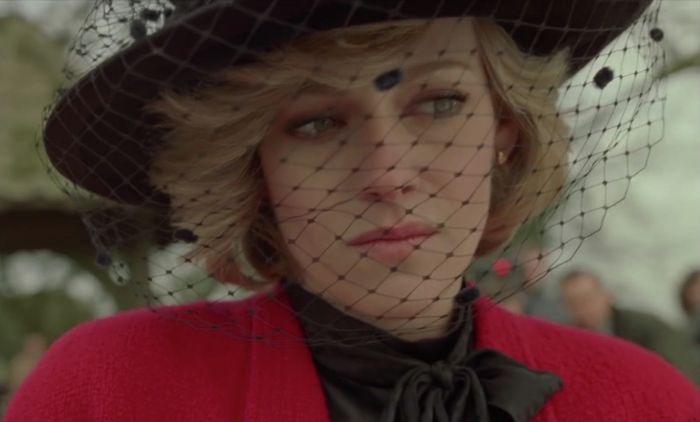The promises and perils of biopics
Film and TV Writer Ariel de la Garza explores the life and times of the age-old biopic, weighing up those that have become cinema success stories, and others that have succumbed to cinema’s pitfalls
What do Obama, Lady Diana, Tonya Harding, the Guccis, the Queen, Celine Dion, and Bernie Madoff have in common besides a lifelong commitment to fashion? Biopics. All have had their lives adapted for the big screen, some the small screen, and some both. In today’s oversaturated media landscape where everyone has a YouTube Channel, a fitness brand, and a chain of coffee shops, are you even human unless you have one? Even Dick Cheyney does.
It’s clearly the age of the biopic, yet despite their popularity with studio executives, does anyone still care? Will you, dear reader, still line up with the same joy and anticipation to watch another biopic of Winston Churchill? I suspect no. I suspect you, like your humble correspondent, are sick and tired of biopics. But not all of them are the same. I present an inexhaustive taxonomy: the Character Biopic (King Richard, American Sniper, Hillbilly Elegy), the Prestige Historical Biopic (Darkest Hour, Churchill, Lincoln), the Music Biopic (Respect, Rocket Man, Bohemian Rhapsody), the Sports Biopic (Ford V Ferrari, I Tonya, Moneyball), the Fantasy Biopic (Spencer, Vice, Radioactive, Mank) and, perhaps the dearest to my heart, the Unauthorised Trash Biopic (Stardust).
“It is clearly the age of the biopic, yet despite their popularity does anyone still care?”
It would seem that Hollywood has an infatuation for biographical films. The reasons for this infatuation and its recent fever pitch are — surprise, surprise — largely financial. Film executives are risk averse; they want sure-fire successes so their studios, that have quarterly reports and compete for credit in a tight corporate bond market, can have predictable returns and maximise returns for their shareholders. This cruel market logic also explains superhero movies and remakes. As long as your movie doesn’t rock the boat — i.e., make the characters BAME or women — the fans will buy a ticket, and it will keep your conglomerate’s IP visible, and thus valuable.
“They are real stories about real people. Or at least they can be”
Since every movie can’t be about superheroes, the next best thing is celebrities and public figures. They have name recognition, product tie-ins, and even franchise potential. In King Richard (2021), the new biopic of Serena and Venus Williams’ dad, we are left at the start of Venus’ career teasing her sister’s precipitous rise. Sequel? But music biopics are perhaps the quintessential products of our current monopolistic corporate media landscape: the studios own the record companies that own the rights to distribute the songs the band you love oh-so-very-much made. Queen, whose North American distribution rights are owned by Hollywood Records, which is owned by Disney, made £41.95 million in 2020, largely due to the success of Bohemian Rhapsody (2018), a film produced by Regency and 20th Century Studios, both of which are owned by — drumroll please — Disney. Ahh, there is something beautiful about the craven, almost organic accumulation of capital, isn’t there?
A less cynical appraisal of biopics, would say they endure because they deal with universal themes; they are real stories about real people. Or at least they can be. Films like Hidden Figures (2017) and Judas and The Black Messiah (2021) are trying to fill in crucial parts of our popular understanding of history. Moreover, biopics afford the possibility of exploring a time and place from the intimate perspective of a real person that had a real impact on the world. The Mauritanian (2021), for instance, follows the life and unlawful imprisonment of Mohamedou Ould Salahi in Guantanamo Bay detention camp, and shows in gruelling personal detail the impacts of such an injustice. Judas and the Black Messiah, on the other hand, chooses to focus on the life of FBI informant William O’Neill and his betrayal of civil rights activist Fred Hampton. The film vividly dramatizes the state-sanctioned murder of Hampton and adds much needed texture to the often-two-dimensional discussion of civil rights in American popular media.
At their best, these movies can be grand, epoch defining epics like Malcolm X (1992), or intimate character studies like Can You Ever Forgive Me? (2018). At their worst they are narratively inert slogs that slander their subjects and reduce human achievement to a soul crushing list of beats. Their draw, on paper, is clear: big people, big events, you get to be in the room with Churchill, with Venus and Serena Williams when their father taught them the stance. But unless they have a clear artistic direction, like Spencer (2021) and Shirley (2020) that are thrillers masquerading as biopics, or have a compelling, untold story like Hidden Figures, best stay home.
 Comment / Plastic pubs: the problem with Cambridge alehouses 5 January 2026
Comment / Plastic pubs: the problem with Cambridge alehouses 5 January 2026 News / Cambridge businesses concerned infrastructure delays will hurt growth5 January 2026
News / Cambridge businesses concerned infrastructure delays will hurt growth5 January 2026 News / New movement ‘Cambridge is Chopped’ launched to fight against hate crime7 January 2026
News / New movement ‘Cambridge is Chopped’ launched to fight against hate crime7 January 2026 News / Uni-linked firms rank among Cambridgeshire’s largest7 January 2026
News / Uni-linked firms rank among Cambridgeshire’s largest7 January 2026 News / AstraZeneca sues for £32 million over faulty construction at Cambridge Campus31 December 2025
News / AstraZeneca sues for £32 million over faulty construction at Cambridge Campus31 December 2025










